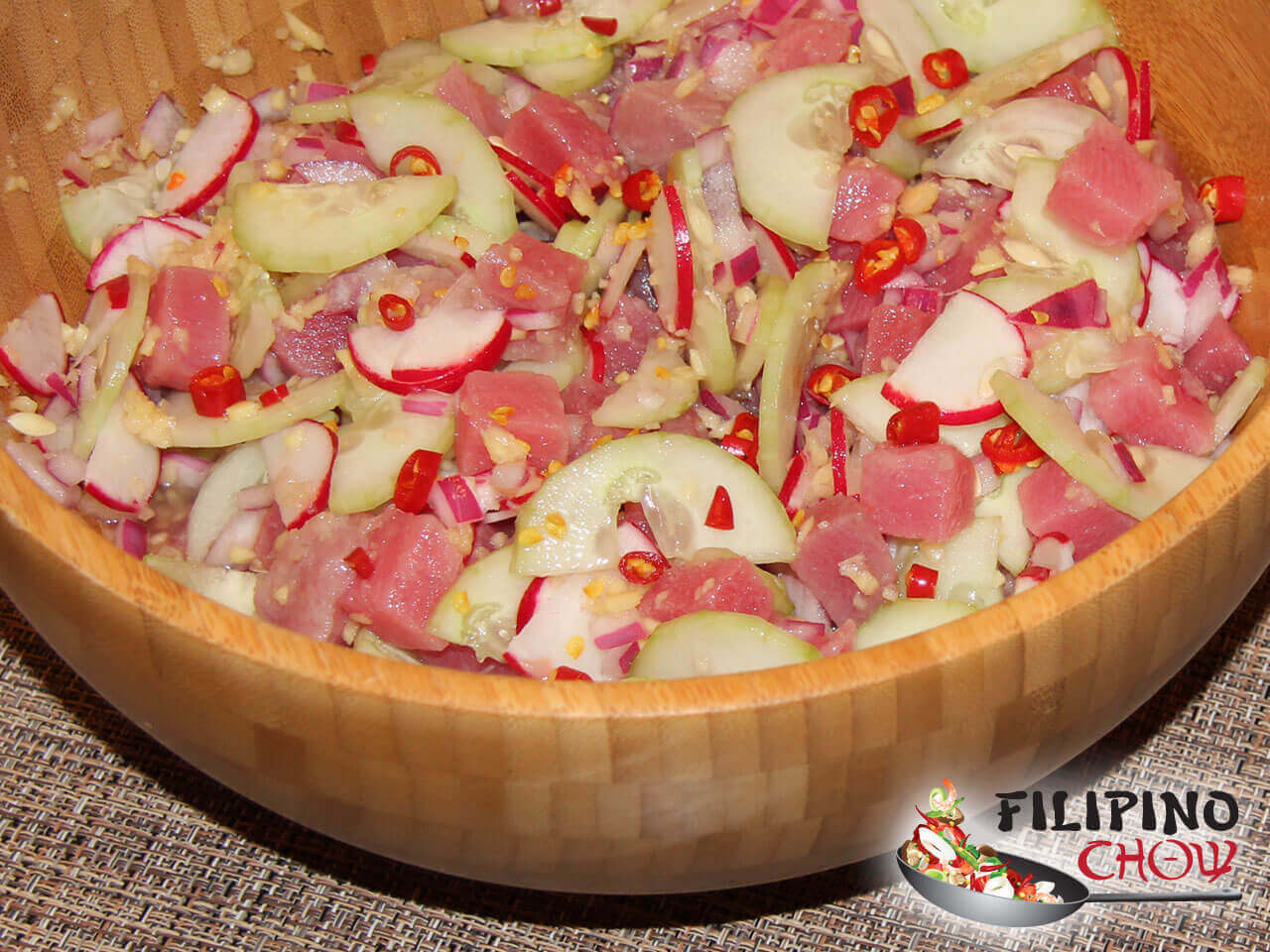This is Kinilaw na Tuna (Ceviche with Ahi Tuna). This dish is essentially a raw fish ceviche preparation that is commonly served as an appetizer or pulutan in the Philippines. It pairs well with cold beer due to the high acidity of the sauce. Like with most ceviche dishes, this recipe does not involve any cooking with a heating element. Some variations of this dish intentionally leave the tuna in the acidic brine for hours to fully “cook” the fish until it turns completely white. However, we prefer it prepared quickly and served while the tuna is still raw. Because of this, it is important that you use sushi grade yellowfin tuna and follow raw fish preparation guidelines when preparing this dish to reduce the risk of food borne illness. One trick that we use to speed up the preparation of this dish, since there is a lot of chopping involved, is to use a mandoline slicer. Not only does that speed things up, but it has the added benefit of making your radish and cucumber slices more consistent in thickness. Enjoy this recipe from all of us at Filipino Chow.
Kinilaw na Tuna (Ceviche with Ahi Tuna)

Ingredients
- 1 pound of tuna ahi filet, cut into cubes
- 2 thumb-sized pieces of ginger, minced
- 1 large red onion, minced
- 1 large cucumber, peeled then thinly sliced
- 6 " 7 pieces of red radish, peeled then thinly sliced
- 1 1/2 cup of vinegar
- 1/2 cup of calamansi juice
- 1 teaspoon of sugar
- 1 teaspoon of salt
- freshly ground black pepper to taste
- 1 " 2 pieces of red chilies, minced (optional)
Instructions
- Place the cubed tuna in a colander or bowl you can easily drain.
- Pour about half of the vinegar over the meat while gently tossing it.
- Drain all the vinegar immediately once all the meat has been coated with the vinegar.
- Now combine all the ingredients (except salt and pepper) together in a large mixing bowl.
- Stir and toss everything until it is well blended.
- Adjust the flavor with a little salt and pepper to your preference.
- Serve immediately.
Remember that the acidity from the vinegar and calamansi juice will "cook" the tuna, turning it from red in color to white. This happens pretty fast too. Once this happens the meat tends to get softer and less palatable. Because of this, kinilaw does not keep well. So be sure you have enough guests available to consume it all and try to eat it fairly quickly. You can substitute lemon juice for the calamansi juice, if needed. Also, if you or any of your guests are sensitive to spicy food, do not include the chilies.
